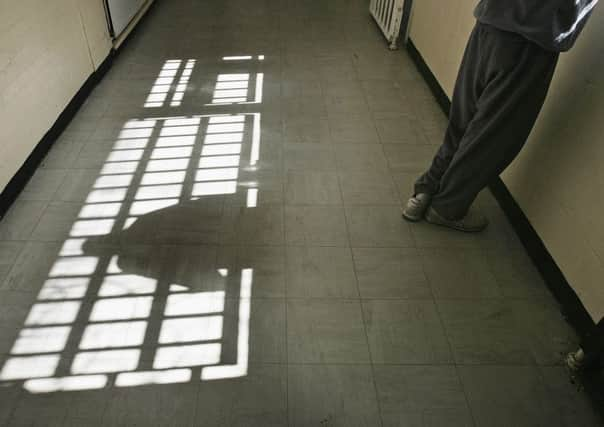Emma Flood: How will end of automatic release affect Scottish Justice?


Prior to this change in the law, prisoners could be released after serving two-thirds of their prison sentence, subject to parole board approval.
We take a look at how the change in the law may affect the prisoners who will serve their full sentences before being released, and also whether automatic early release will affect the justice system in terms of sentencing, cost and rate of reoffending.
The effect of automatic early release on offenders
Advertisement
Hide AdAdvertisement
Hide AdWhilst the new law has been heralded as ‘the end of automatic early release’ the changes will in fact only affect around 3% of prisoners. The Conservative party released statistics showing that whilst around 14,000 custodial sentences were given out in Scotland in 2013/14, only 450 of these were for more than four years – the length of sentence that would trigger the end of automatic early release legislation.
There was discussion of applying the legislation to all prisoners, however, in order to create a more balanced justice system, the Justice secretary, Michael Matheson, is looking to provide alternatives to custodial sentences for those committing lesser offences. He said:
“We are seeking to achieve a more balanced justice system in Scotland. One which ensures that our communities are protected from serious offenders whilst those offenders at the lower end of the scale serve out their sentences through effective community-based alternatives, with targeted support to help them overcome the underlying causes of their offending behavior.”
In addition, the Scottish government responded to concerns about prisoners being released ‘cold’ with no supervision or support in their local community, with a blanket 6-month period on license. As a result, ‘the end of automatic early release” only applies to a small number of prisoners serving more than four years, who will still be released 6-months earlier than the official end of their sentence. This appears to be a minor change in the law, and one which has beet met with great criticism, but will it make a big change to the justice system?
The effect of Automatic Early Release changes on the justice system
As with all changes in legislation it is important to look at the cost. The Scottish Government has estimated that the cost of the system of automatic early release will increase for all long term prisoners from £4.6m in 2019/20 to £16.7m in 2030/31.This is more than half of the Scottish Government’s current budget for community justice at £31.8m in 2015/16.
The justification for the increased cost is that prison is the “right place” for long term offenders, and that judges have handed out such lengthy sentences after consideration of all of the circumstances surrounding the facts of each case.
With this in mind, is it possible that judges have in the past taken into account the automatic early release provisions? Will the change in the law have an effect on on how sentences are handed out? This could have a particular effect on those cases where judges are deciding between giving a sentence of four years, or a sentence of three years.
Advertisement
Hide AdAdvertisement
Hide AdIn practicality, with the end of automatic early release for those serving four years or more, the actual jail time served could be very different were they given only a slightly shorter sentence.
Past President of the Glasgow Bar Association, and solicitor advocate with The Glasgow Law Practice, Ross Yuill said:
“The comments made by Michael Matheson are welcomed by the majority of the legal profession. The protection of the public from higher tariff offenders makes sense. The issues relating to the continuing use of short term sentences for relatively minor offences is still unresolved. My own view is that there continues to be an overuse of short remand periods and short term sentences where courts should be selecting community based alternatives. “
Curated Media’s Emma Flood is a creative content specialist for law firms.